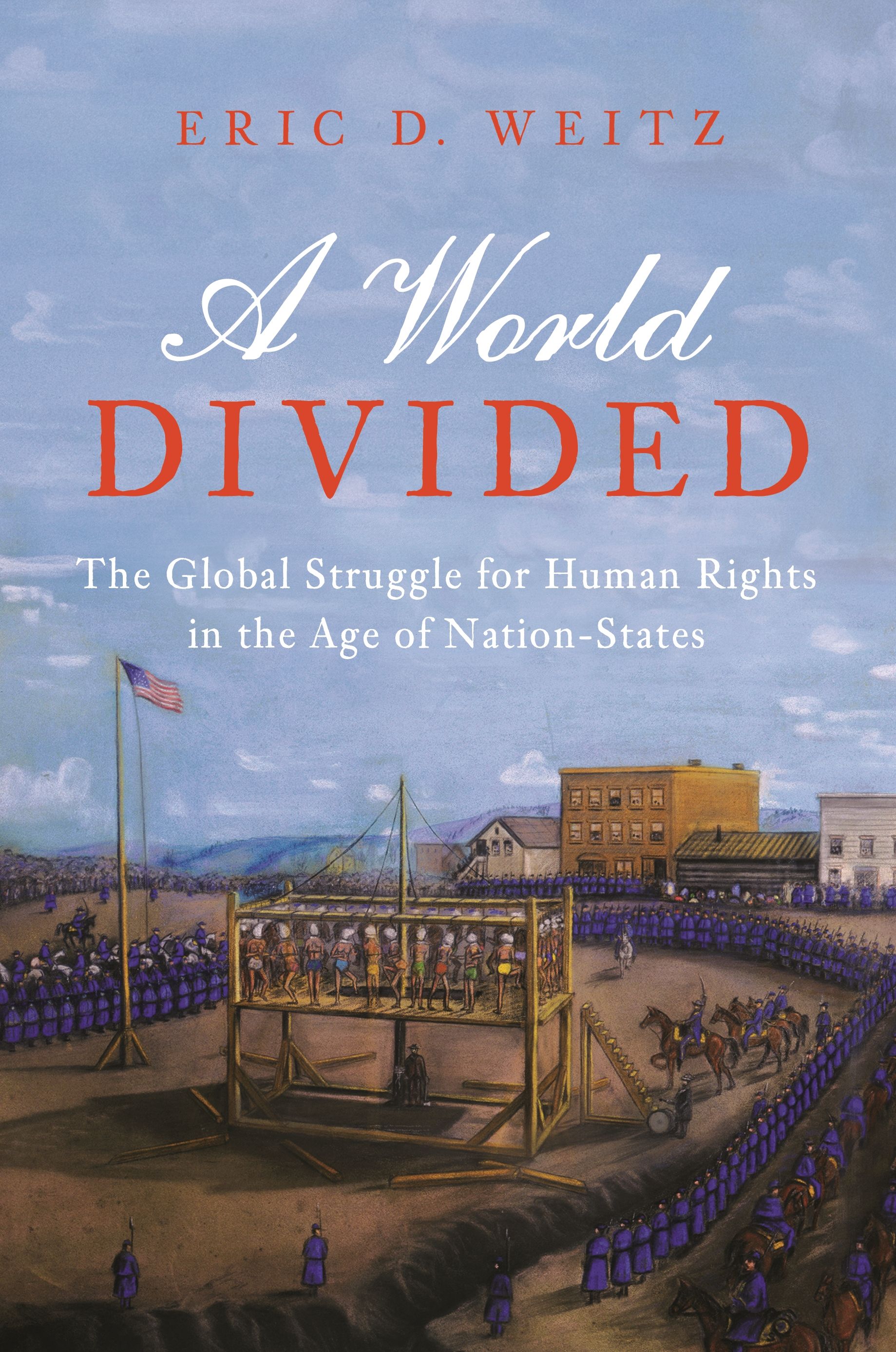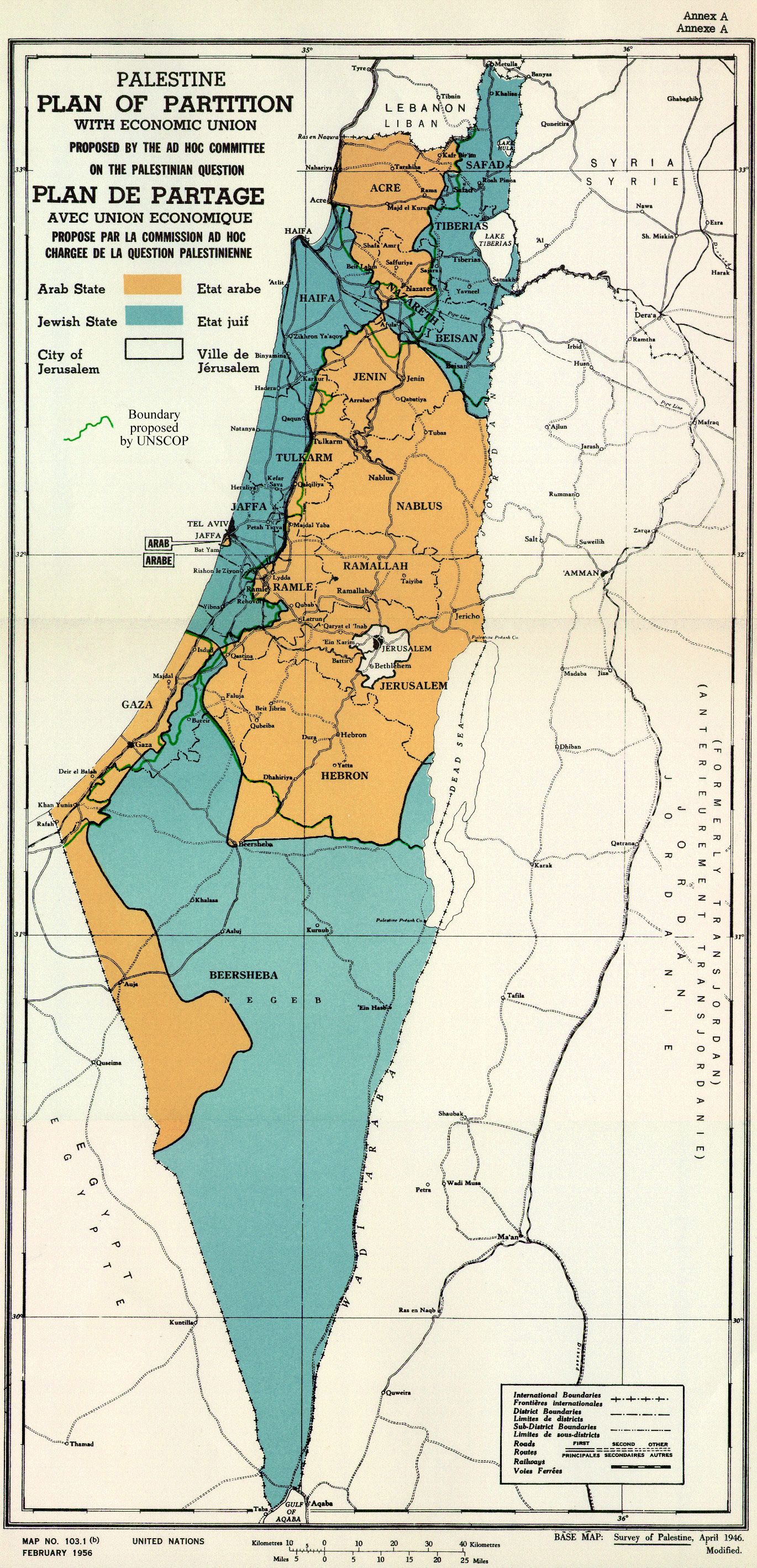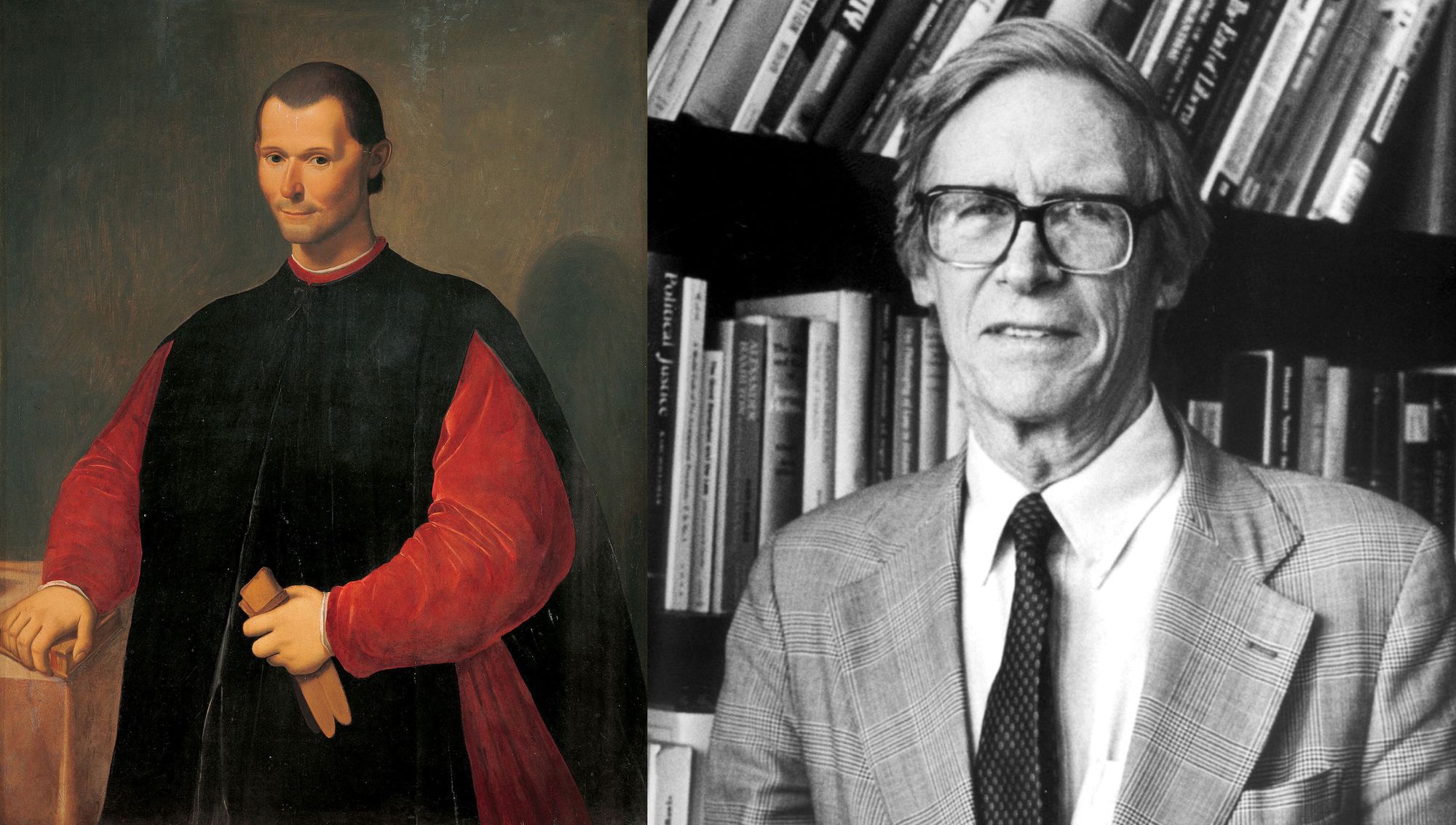Us and Them

This post should be synched up with Dark Side of the Moon.
BOUNDARY, n. In political geography, an imaginary line between two nations, separating the imaginary rights of one from the imaginary rights of the other. – Ambrose Bierce
Among much else, the new year has gifted us another neologism: “vaccine nationalism.” This basically seems to be a byword for the fact that countries presently in position of COVID vaccines assign greater priority to inoculating their own citizens than the citizens of other countries. What is interesting is that this phrase is being used pejoratively, not just descriptively.
As someone who has already thought about questions of nationalism and rights more than is strictly healthy, I found this phrase revealing about the entangled moral assumptions we seem to bring to the table when thinking about modern politics. Now serendipitously, while thinking about this, I came across James Loeffler’s insightful review of Eric Weitz’s book: A World Divided: The Global Struggle for Human Rights in the Age of Nation-States, which I had otherwise forgotten about.

That book concerns the twinned history of the spread of ideas of human rights and the establishment of modern nation-states in the 19thand 20th centuries. The trouble, in Weitz’s account, is that the first is yoked to the second. In other words, as modern states came to dominate the globe, rights were extended to those who acquired citizenship in them, while others came up short. Hannah Arendt famously called this “the right to have rights.”
Now I found Weitz’s book primarily of interest not in itself, but because I think it reflects common problems in how people think about the relationship between rights and politics in the modern world. Weitz, for example, seems perpetually surprised at how states that were notionally constituted to preserve certain rights often end up abrogating or outright ignoring them when it comes to non-citizens. He calls this dilemma “paradoxical,” though it is nothing of the sort; it is something that inheres in the nature of popular sovereignty. I’ll explain!
To return for a moment to the vaccine thing, the complaint is that countries with the capacity to manufacture vaccines have determined that their own citizens will be vaccinated before any consideration is given to shipping surplus to those that lack it. Now calling something “nationalism” is usually a way to undermine its legitimacy, but one could just as easily call it…democracy.
Thinking of this problem in mere transactional terms, it seems pretty straightforward. If I legally reside and pay taxes in the United States, I am certainly going to prefer that I receive certain benefits from its government ahead of someone who does those things in Canada. And, branching out, the transactional view of citizenship is broadly the one taken by modern political thought: we give up a certain degree of natural freedom and acknowledge sovereign laws, and we get something back for it. As Churchill might say though, this transactional view is true but not exhaustive. I think our moral intuitions are not wholly satisfied by the idea of treating citizenship this way—the way we might accept that it’s ok that the Raptors don’t pay Kawhi Leonard’s salary seeing as he plays for the Lakers.
The matter is that the stakes are simply higher and the claims of governments vaster than any sporting organization. Just compare the case rates for countries with and without vaccines, and we can see that this is literally a matter of life and death. That some receive certain protections and benefits, and others don’t cannot really be treated like two customers with different telephone plans. And we can picture this dilemma spiraling ever outward, encompassing refugees, migrant children at the border, even distant political prisoners and stateless minority groups.
The problem in a nutshell is that human rights may be universal, but the states that safeguard them are particular. The rights aren’t anywhere; they just are. But countries have to exist in actual space, and the number of potential states is finite in practice—presently shaking out to about 200 around the world. Why then do some people get states while others come up short? Or for that matter, why do some get to live in the kinds of states that people flee to and others in the kinds of states that people flee from—the ones Donald Trump infelicitously referred to as “shithole countries”?
Obviously, these speculations can go galaxy brain pretty quickly and extend to broader questions of moral luck (why can’t I play basketball like Michael Jordan? Why can’t I sing like Prince? Etc.). How and where and when we’re born is aleatory—a roll of the cosmic dice—and I’m not even sure how much political understanding we gain by asking why individual people get the states they do. But there’s a great deal to be said about how and why peoples get the states they do.
This is sometimes referred to as the “boundary problem” in political theory: if “the people” constitute the state, what constitutes the people? This is not just some abstract scholarly question! Just consider the first three words of the U.S. Constitution: “We the People…” The Constitution itself has many interesting things to say about many things, but very little to say about just who is being referred to as “the people.” And yet the question itself was highly relevant, as the example of the heated debates at the Constitutional Conventions over the political status of slaves should suffice to indicate.
So, “the people”: highly vague yet unavoidable for us. There are many, many forms of political society, but most don’t have this problem. Tribal societies are but extended clans, in which one’s association is derived from the family (and everyone basically knows who your family is). Monarchs and emperors rule over vast holdings, but they rule through dynastic tributaries or administrative and military officials; there is no “people” to answer to. The specific nature of their subjects does not require definition, insofar as they don’t derive their authority from those they rule.
Modern states, however, which claim to represent the people they govern, have a boundary problem to deal with. Even for states with relatively fixed borders and populations, it may not come up on a day-to-day basis, but it bleeds through around the edges. Refugees, large-scale migration, porous border areas, unsettled minority groups: all these and more will push the problem back into view, leading many to ask, “why are these and not those people subject to our protections and benefits?”
I said before that this problem inheres in the nature of popular sovereignty. The great political thinkers of the early-modern era—from Thomas Hobbes to John Locke to Jean-Jacques Rousseau—had all considered it from different angles. If we want government to be representative, it has to have something to represent. That something usually cashes out as “the people”: a given group who establishes and authorizes the vast apparatus of the modern state to protect and preserve them. What matters is not that the people have some fixed and final definition—an historical impossibility—but that it be both sufficiently uniform and limited in character as to provide the basis for the modern democratic state. Whoever the people are, its boundaries can only extend so far—some are in and some are out. And because there is no decent or rational method of sorting peoples according to first principles, we basically rely upon history to do it for us.
Of course, we might like to consign this sort of thinking to some earlier, less enlightened age—a time with corporal punishment and without toilet paper, and all the rest of it. But as no less a modern figure than the sainted John Rawls wrote of his Theory of Justice: “I assume that the boundaries of [the schemes of justice being considered] are given by the notion of a self-contained national community.” Jurgen Habermas, the other philosophical giant of postwar liberalism, is even more blunt about it: “Any political community that wants to understand itself as a democracy must at least distinguish between members and non-members.”
Indeed, as Weitz’s book details, this is pretty much how things shook out as states—including democratic states—began to take shape. Meanwhile, once those shapes locked into place, the fixed character of the modern state system began to constrain the possibility of what Albert Hirschmann called “exit.” Prior to the consolidation of the state system, many different ethnic, religious and kinship groups lived under conditions of greater uncertainty but also greater flexibility. But the same structures that have produced security and comfort for so many have also created pressure-cooker situations for others.
After all, even when you can leave, you still need someplace else to go. To use what remains the most high-profile example: the experience of Mizrahi Jews after 1949 differed starkly from that of Palestinians—the former group had an available national home to receive them, and the latter did not. This is part of the international game of musical chairs that has been ongoing for two centuries now.

For these and other reasons, critics of this arrangement would like to decouple individual rights from national ones. But this is very hard to in practice, for eminently liberal reasons. To take the Canadian case: everyone knows and mostly loves the generous welfare benefits the state provides: healthcare, parental leave, etc. But these benefits would rapidly dwindle if expanded beyond what the country’s tax base would accommodate—a fact of which Canadian Immigration is well aware. Seriously, just try and immigrate there out of the blue. Have fun with that!
(This btw is really just a contemporary illustration of Machiavelli’s pairing of liberality and parsimony: to be liberal to some means being stingy toward others. Nor is this hypocritical! There is a reason that John Rawls, who sought to devise a blueprint for maximalist distribution under a liberal society, had no problem insisting on rigid boundaries around the state. So yes, in a sense, there is crooked line running from Machiavelli to Rawls, though I doubt the Rawlsians would admit it.)

Like it or not, in other words this stuff is built right into the framework of modern liberalism, because the rights of individuals are tied in practice to their membership within a larger people that legitimizes any government which acts as the guarantor of those same rights.
It is for this reason that migration (for non-sex criminal types) tends to go in a particular direction: to countries with stronger guarantees of individual rights. Interestingly, it is also for this reason that our world—which is frequently extolled in TED talks as one of porous borders, capital flows, a loose affiliation of millionaires and billionaires and baby, etc.—cannot truly be characterized as “cosmopolitan.”
Cosmopolitanism is of course parasitic, presupposing the existence of other communities which are not cosmopolitan to provide it with juice. But more importantly it is parasitic because we are, as much as possible, tethered to states and the rights they notionally protect. No present-day cosmopolitan can really be called a “citizen of the world”; she is, at most, a citizen of one or more states that can support a preferred lifestyle. It’s not a hostage situation exactly; being inalienable, those rights come with you when you leave, but there’s no guarantee you’ll land somewhere that will respect them.
Speaking personally for a moment, I read the accounts of cosmopolitan life in Abulafia’s descriptions of Smyrna in The Great Sea or Durrell’s descriptions of Alexandria in Justine, and I pretty much think: that’s the life for me. And having spent the bulk of my adult life in one of several foreign countries, it would be hypocritical to deny that I’m one of those rootless cosmopolitans you hear about. Yet, in today’s world we are largely cosmopolitans in name only, either choosing to reside in those countries offering secure protections under the law—or relying upon the consuls of our home countries to step in if things get really hairy. None of these options was available to the minority groups under actual imperial rule; even where they flourished, their existence was a fundamentally precarious one, as history has shown time and time again.[1]

Now, if you really want consistency on this score, the libertarians are your guys. A Robert Nozick-style night-watchman-state will let just about anyone in and restrict its business to making sure nobody goes full Mad Max Beyond Thunderdome, but that’s about it. Such an inclusive and cosmopolitan vision is so popular that the Libertarian Party of the United States has never cracked 3.5% of the vote in a general election—a global high-water mark! All signs in fact point in the opposite direction: the trends in the developed world are toward greater centralization, expansion of welfare, and proliferation of rights in need of state protection.[2] Meanwhile, those at the opposite of the spectrum—the Kurds, the Palestinians, Rohingya, et al.—are very much seeking such states of their own.
To return to Loeffler’s review, he examines Weitz’s history in light of the Israel-Palestine situation and considers a variety of possible alternatives that go beyond the confines of separate nation-states (a solution that itself remains elusive). In each case, the solution seems stymied by the likelihood of one group effectively ruling over another. But should that even matter, when it comes to the (supposedly) more fundamental question of securing individual rights? One thinks here of Ernest Gellner’s lament about the demands of nationalism:
Life is a difficult and serious business. The protection from starvation and insecurity is not easily achieved. In the achievement of it, effective government is an important factor. Could one think of a sillier, more frivolous consideration than the question concerning the native vernacular of the governors?
I am deeply sympathetic to this critique. And yet…is it so frivolous really? Is it just an expression of amour-propre, of the kind of ethnic chauvinism that makes Jews disproportionately excited about a Joe Lieberman or South Asians over a Kamala Harris? I am not sure. Just think of the vast power at the modern state’s disposal, the stakes involved in adjudicating the rights and prerogatives of individuals on such a vast scale. Recall that even the smallest countries today are larger than the Athens of Pericles or the England of Henry V.
We throw around the world “legitimacy” a lot (too much, really) these days. But legitimacy is just a social science-y word for “trust.” National commonality is an easy proxy for trust. Certainly no guarantee, as the experience of southern Italy indicates, but it’s a safer bet than the alternatives. When push comes to shove, when interests conflict, how can we best be sure that the agents of the state will look after us instead of the other guy?
This is hardly the place to venture into a full-on discussion of nationalism, but it should at least be clear how any attempt to safeguard individual rights in a modern framework opens up the question of nationalism. It may be a bad ordering principle, but it is very much our ordering principle. We who aren’t doing too badly like our peoples, our boundaries, our lines on the map.
There’s a lovely moment at the end of The Once and Future King, where a dying Arthur recalls his education by Merlyn, thinking how different society would be if all the world’s people could have the chance to see the world as animals do:
He remembered…the island which they had seen on their migration, where all those puffins, razorbills, guillemots and kittiwakes had lived together peacefully, preserving their own kinds of civilization without war—because they claimed no boundaries. He saw the problem before him as plain as a map. The fantastic thing about war was that it was fought about nothing—literally nothing. Frontiers were imaginary lines. There was no visible line between Scotland and England, although Flodden and Bannockburn had been fought about it. It was geography which was the cause—political geography. It was nothing else. Nations did not need to have the same kind of civilization, nor the same kind of leader, any more than the puffins and the guillemots did. They could keep their own civilizations, like Esquimaux and Hottentots, if they would give each other freedom of trade and free passage and access to the world. Countries would have to become counties—but counties which could keep their own culture and local laws. The imaginary lines on the earth’s surface only needed to be unimagined. The airborne birds skipped them by nature. How mad the frontiers had seemed to [the Wild Geese], and would to Man if he could learn to fly.
For over a century now, we have had the power of flight, for all the good it’s done us on that score. The problem is not simply that we are short-sighted or chauvinistic; it is that having spent centuries insisting that governments must answer to their peoples, we cannot realistically expand that remit without dissolving the bonds of democracy.
We can lament all we like the ways in which national and democratic principles have become hopelessly intertwined, but I can see no way to untangle them that doesn’t leave a sizable number of people (and peoples) unsatisfied. Just another way in which we have to keep muddling through, it seems.
[1] I am well aware of the irony that many such expulsions were a product of the consolidation of nation-states in the 19th and 20thcenturies. It is historically preferable to have been a minority group under imperial rule than under the rule of a modern state other than your own. But one should not underestimate the contingency of the former situation.
[2] Many of these latter-day rights—involving, e.g., freedom from mental harm—are dubious to say the least. But the proposed outcome is the same: the strengthening of institutions that might protect us.
